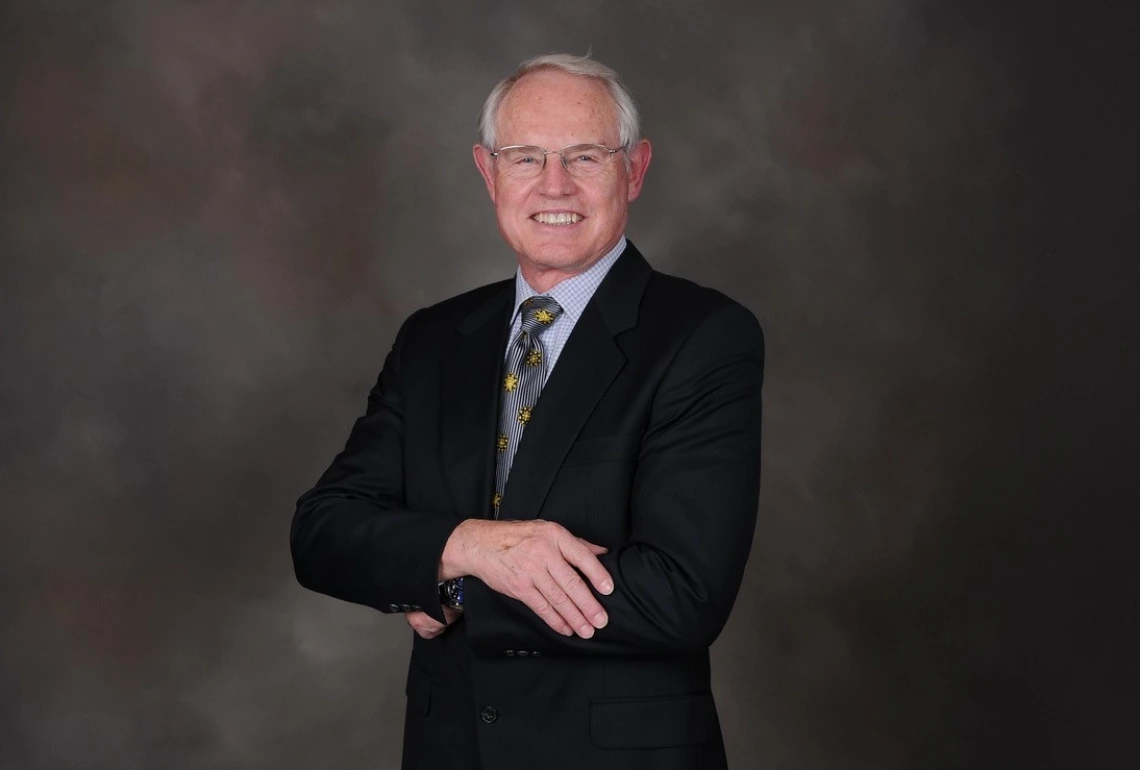One-on-One with Mentor Don McDonald

Don McDonald earned his bachelor’s degree in electrical engineering at the University of Arizona, then went on to attend graduate school for electrical engineering and business. Since then, he has made his career in the upper management levels of engineering companies. He was the founder, president and CEO of DRS Consulting, Inc.; the president and CEO of JDS Uniphase; and the COO of Intense Photonics.
In fall 2018, he became a capstone project mentor, a role where he can share his expertise in engineering management and the semiconductor industry with the next generation of engineers.
What inspired you to become a mentor?
I really enjoy the challenge and the opportunity to develop the teams and individuals in a more realistic, businesslike atmosphere where there is continuity for an entire year. There is a methodology for the team members to apply all their engineering skills, while also developing project management and teamwork skills — all within a defined program.
What is your personal experience of having a mentor? How did it help you?
I personally never had a designated mentor, but I did have some managers at technical companies that were very supportive and provided career guidance. They were there for me to discuss alternatives between a purer engineering focus and a larger management focus.
How does being on a mentored design team help students in the professional world?
I believe there is a great deal of value for teams and individuals in being on mentored design teams. This is because they absolutely get a view of how companies and sponsors structure and value projects. They are able to participate in the definition of the project: the first main element of the yearlong program is to define an adequate proposal which describes the project and meets the sponsor’s requirements. A design project like this requires teamwork and project management skills to be really successful. The basic structure follows industry methodologies for designing and bringing a new product to market. All this insight is very valuable for team members, for it simulates many of the experiences they will have in their first jobs in industry.
What’s your favorite team or project you have mentored, and why?
It is difficult to choose a favorite project or team, but one of the very interesting ones from last year was the team that developed a system to stress the cartilage being grown from stem cells. They had to develop a very precise motor/screw system, a container for the growth medium, and the scaffolds upon which the cartilage was grown, as well as strain gauge sensors on every scaffold to sense the actual strain being applied. They also went beyond the requirements of the project and emulated the actual time-based strain of a knee when steps are being taken.
Describe an aha! moment you experienced while mentoring a design team, when you saw clearly how students benefit from mentorship.
I believed in the mentorship, so I expected the teams to really benefit. But, an aha! moment was when two teams finished the project and each of the sponsors said it was “ready to go to market.” This was a really significant statement, in my opinion, on the value of mentorship.
What advice would you offer to others considering mentoring a design team?
Mentors should be willing to invest the time to understand projects well enough that they can provide teams with the guidance that a similar team in an industrial setting would receive.
How do employers benefit when they hire students who have been on a mentored senior design team?
Employers benefit from the program because the projects emulate the “define, design, build and test” work that is required in industry. The methodology is very similar to industry, and students are much better prepared from the beginning of their careers to be successful in the typical jobs with which they will be involved.
Tell us something about yourself that people might be surprised to learn: Have you climbed Everest, crossed the Atlantic solo, invented a remarkable gadget, played guitar in a rock band, volunteered for a disaster-recovery program? Tell us something fun, impressive or unique that paints a picture of who you are.
In terms of surprises, I probably don’t have too many, but I did greatly enjoy the opportunity to work in Europe for 10 and a half years with three different companies in three different countries. One other thing I really enjoyed was backpacking and exploring across the Grand Canyon (North Rim to South Rim) twice — four days once and five days the second time.
What else would you like us to know?
I enjoy every minute of the mentoring program and enjoy working with every team, team member and project.

